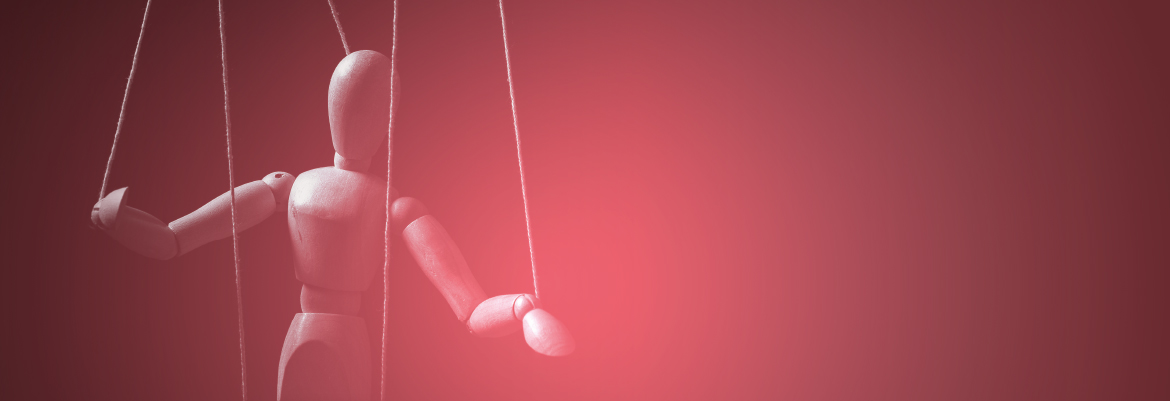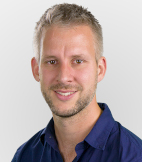But seriously, have you attended a lecture on power? Or heard a sermon on the topic? I didn't think so. Power is 'the ability to make something of the world'. Power isn't 'out there' but 'in here'; and in the world of medicine we are told we have lots of it. We can prescribe powerful drugs; we can influence someone's decision making; we 'control' conversations to break bad news; we hold the keys to restricted investigations. We might not be superheroes, but we are sometimes made to feel like it.
power — really?
On the flip side, as we progress through our medical careers, we can sometimes feel the opposite. In my practice as a paediatrician, I can feel powerlessness when faced with a child who presents with an aggressive brain tumour. I sense my inability to slow down assessment unit referrals which are up by 50 per cent in four years, with no increase in staffing. I can feel helpless to change the course of a four-year-old's life who has already suffered multiple adverse childhood events and is going into care. The culture we live in, the systems we work in, and the reality of my human finitude seems ever-present.power as a gift
Despite my daily feelings of impotence, we do of course exert a degree of power or 'influence'. God delegated power to humanity by commanding us to be fruitful; to multiply, subdue, and have dominion over the earth. [1] In this sense, we can view power as a gift from God to be exercised wisely in our workplaces and homes.Andy Crouch in his excellent article It's Time to Talk About Power, says power '…is a gift — the gift of a Giver who is the supreme model of power used to bless and serve. Power is not given to benefit those who hold it. It is given for the flourishing of individuals, peoples, and the cosmos itself...Power is not the opposite of servanthood. Rather, servanthood, ensuring the flourishing of others, is the very purpose of power.' [2]
In healthcare we will recognise that power means privilege, and when we exercise power well, we build currency. Patients trust our decisions. Nurses are confident in our reliability. Colleagues appreciate our integrity. Building that currency means we are given trust and space to work. This is a privilege and a gift to be exercised with care.
power distorted
And yet the fall of man is a reality; when unchecked, power can be abused. You will see this as you progress through your training. In my department one encounters victims of domestic abuse and child sexual abuse, which at their heart are abuses of power. You'll have perhaps already seen power 'tug-of-wars' between departments or even between consultants on your placements. Power is abused all around us in healthcare and we have a front row seat as this plays out.But we need to look within as well. As medics we can be proud because of the power we yield, tempted to look down on those with less knowledge, be it someone in our tutor group or a friend studying another subject. We can also misuse power, not only through acts of commission but also omission. As James, the half-brother of Jesus, writes, 'If anyone, then, knows the good they ought to do and doesn't do it, it is sin for them'. [3] Doctors are often the first to speak out for their own welfare when they could use that power to speak for others, both their healthcare colleagues and their patients, especially the unborn, the elderly and other vulnerable patient groups.
Jesus & power
Jesus confronts the issues of power when two of his closest disciples ask him a question in Mark 10:35-38: 'Then James and John, the sons of Zebedee, came to him. "Teacher," they said, "we want you to do for us whatever we ask." "What do you want me to do for you?" he asked. They replied, "Let one of us sit at your right and the other at your left in your glory." "You don't know what you are asking," Jesus said. "Can you drink the cup I drink or be baptised with the baptism I am baptised with?"' The disciples want power. And yet they soon realise that Jesus demands something different.'Jesus said to them, "The kings of the Gentiles lord it over them; and those who exercise authority over them call themselves Benefactors. But you are not to be like that. Instead, the greatest among you should be like the youngest, and the one who rules like the one who serves."' (Luke 22:25-26)
He calls them to be servants.
Throughout his earthly ministry Jesus displays his power by spending it on others. He trades his reputation for our shame. He makes himself low to bring us high. Rather than be consumed by power, he demonstrates power through serving others.
Perhaps referring to Jesus washing his disciples' feet, [4] the Apostle Paul writes,
'In your relationships with one another, have the same mindset as Christ Jesus: who, being in very nature God, did not consider equality with God something to be used to his own advantage; rather, he made himself nothing by taking the very nature of a servant, being made in human likeness.' (Philippians 2:5-7).
It is a tremendous privilege to be invested with genuine power. Even though students often feel so power-less, we need to be aware of the scope of power, however subtle our power may be. And we need to develop skill to use power effectively.
so how do I steward power?
Firstly, Christians in healthcare are to see their delegated power as a privilege to exert a godly influence over our colleagues and environment, 'subduing and having dominion' over the places we live and work. We need to cultivate honest, accountable relationships with others, where we can confess our pride, our misuse of power, and our inaction when faced with the powerlessness of others.Secondly, we need to be ready to share the good news with those who feel powerless. We will come across such people day in, day out, in our healthcare studies and practice. We can share that Jesus himself walked in their shoes. He knows what it means to be humiliated, shamed, rejected, and abandoned, that he can minister to people's pain. We may have a front-row seat to abuses of power, but we can interrupt the drama with the good news of Jesus to a hurting world. When we grasp the Christian worldview that power is a gift — we don't earn it — we will steward it for the good of God's world rather than use it for our own benefit, regardless of its effect on others. Instead of hoarding power and making it work 'for us', we will follow Christ's example by humbly spending it on others. True power is multiplied when image-bearers of the all-powerful God empty themselves of the benefits of their power and spread these benefits to others in ways that promote their flourishing.
Thirdly, we need to be ready to be prophetic voices in our land. We are called not to fear power — be it political, professional, cultural or social — more than we fear God. And we are called to speak out against the abuse of authority. Making a stand for the powerless will inevitably challenge individuals or structures who have power. May we choose boldness and courage over bashfulness and comfort in those moments, as we live and speak for Jesus in medicine, starting as students as we mean to go on.
Finally, we are to embrace our feelings of powerlessness. When we sense our inability to influence people and situations around us, we are identifying with the majority of the world's population and are reminded that, in God's world, we are to live our lives dependent upon him. [5]
I'd disappoint you if I didn't finish with the great Marvel quote 'with great power comes great responsibility'. As medical students you aren't going to gain a superpower, but you will be invested with significant power through your status, knowledge and opportunities. What will you do with it? Will you hoard it, or spend it to the Glory of God?
QUESTIONS FOR REFLECTION
1. In which areas of life do you wield power?2. What temptations do you succumb to — pride, misuse of power, not using your power or even all three?
3. What does 'emptying yourself of the benefits of power' look like to you?
4. How you might prophetically speak out for those who have no power with the truth of the Gospel?
John Greenall is CMF Associate CEO and a paediatrician in Kent































